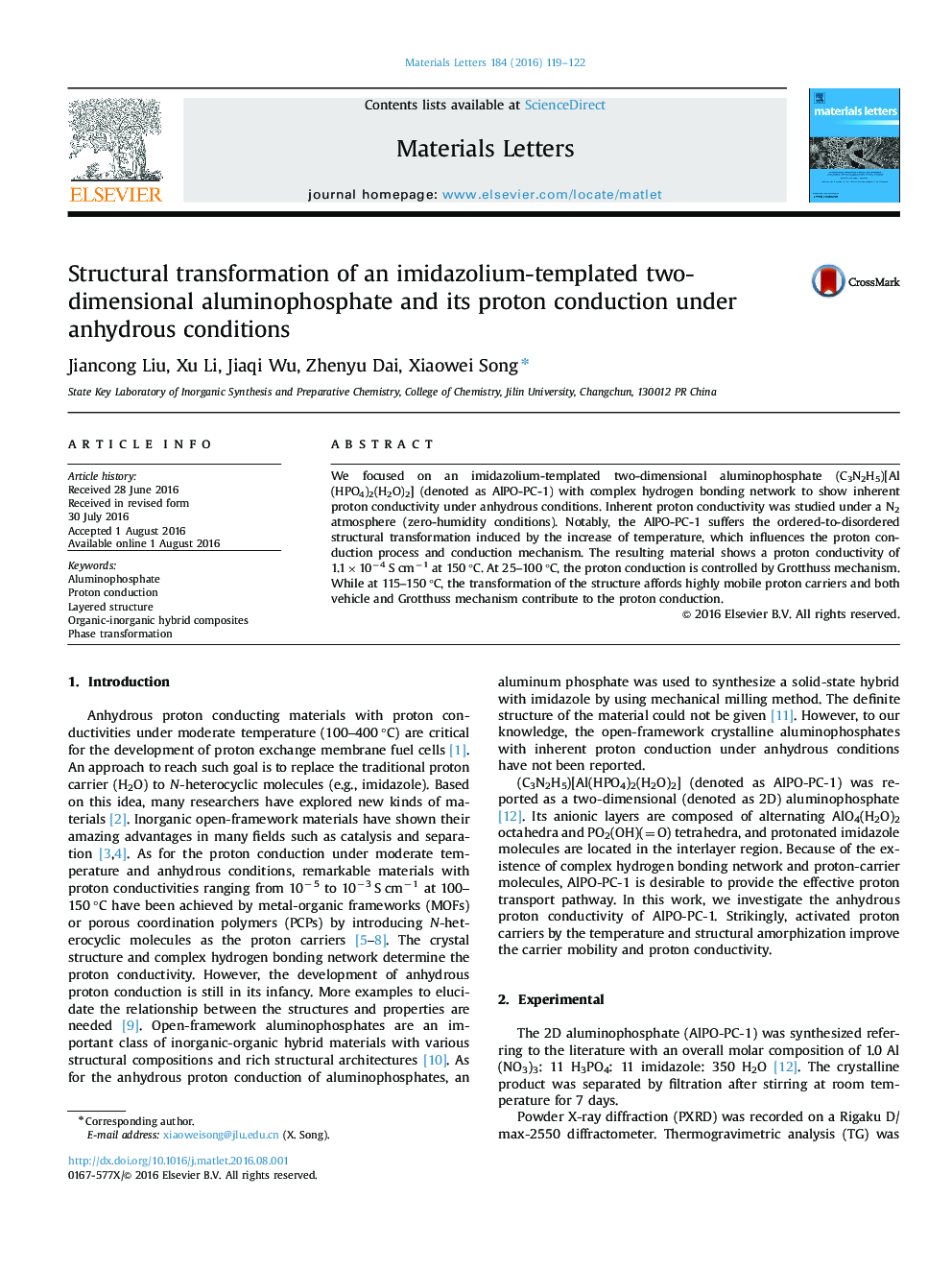| Article ID | Journal | Published Year | Pages | File Type |
|---|---|---|---|---|
| 8016102 | Materials Letters | 2016 | 4 Pages |
Abstract
We focused on an imidazolium-templated two-dimensional aluminophosphate (C3N2H5)[Al(HPO4)2(H2O)2] (denoted as AlPO-PC-1) with complex hydrogen bonding network to show inherent proton conductivity under anhydrous conditions. Inherent proton conductivity was studied under a N2 atmosphere (zero-humidity conditions). Notably, the AlPO-PC-1 suffers the ordered-to-disordered structural transformation induced by the increase of temperature, which influences the proton conduction process and conduction mechanism. The resulting material shows a proton conductivity of 1.1Ã10â4 S cmâ1 at 150 °C. At 25-100 °C, the proton conduction is controlled by Grotthuss mechanism. While at 115-150 °C, the transformation of the structure affords highly mobile proton carriers and both vehicle and Grotthuss mechanism contribute to the proton conduction.
Related Topics
Physical Sciences and Engineering
Materials Science
Nanotechnology
Authors
Jiancong Liu, Xu Li, Jiaqi Wu, Zhenyu Dai, Xiaowei Song,
